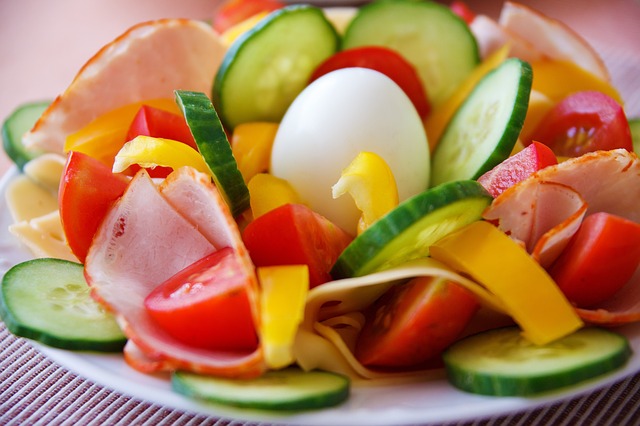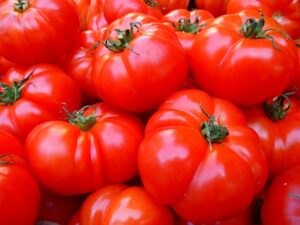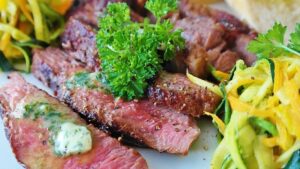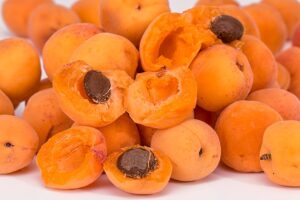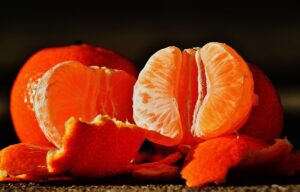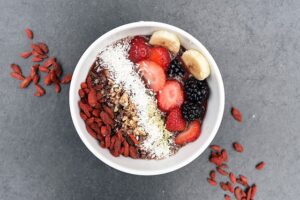Introduction
Protein is an essential macronutrient that plays a crucial role in building and repairing tissues, supporting immune function, and providing energy. However, one common side effect that many people experience after consuming protein-rich foods is increased flatulence, or farting. But why does protein make you fart? In this article, we will dive deeper into the topic and explore the reasons behind this phenomenon.
Protein Digestion and Gas Production
To understand why protein can lead to increased flatulence, it’s important to have a basic understanding of how protein is digested in the body. When we consume protein, it is broken down into amino acids through a process called digestion. The digestion of protein primarily occurs in the stomach and small intestine, where enzymes break down the protein molecules into smaller components.
During the digestion process, certain types of protein, such as those found in beans, lentils, and cruciferous vegetables like broccoli and cauliflower, produce more gas compared to other protein sources. This is because these proteins contain complex carbohydrates called oligosaccharides, which are not easily digested by the human body. As a result, these carbohydrates reach the large intestine undigested, where they are fermented by bacteria, leading to the production of gas.
Bacterial Fermentation in the Large Intestine
The large intestine is home to trillions of bacteria, collectively known as the gut microbiota. These bacteria play a crucial role in the fermentation of undigested carbohydrates that reach the large intestine. When complex carbohydrates, such as oligosaccharides, are fermented by gut bacteria, they produce gases like hydrogen, carbon dioxide, and methane.
In the case of protein-rich foods that contain oligosaccharides, the undigested carbohydrates provide a food source for the gut bacteria, leading to increased fermentation and gas production. This gas then needs to be released from the body, resulting in flatulence.
Individual Differences and Sensitivities
While protein digestion and bacterial fermentation explain why protein can cause flatulence in general, it’s important to note that individual differences and sensitivities play a role in how much gas a person produces. Some people naturally have a higher number of gas-producing bacteria in their gut, which can lead to increased flatulence after consuming protein-rich foods.
Additionally, certain individuals may have specific sensitivities to certain types of protein or carbohydrates, leading to a more pronounced gas production. For example, individuals with lactose intolerance may experience increased flatulence after consuming dairy products due to their inability to digest lactose, a sugar found in milk.
Reducing Flatulence from Protein Consumption
If you’re concerned about excessive flatulence caused by protein consumption, there are a few strategies you can try to reduce its occurrence:
1. Gradually increase protein intake: If you’re not used to consuming a high-protein diet, it’s best to gradually increase your protein intake over time. This allows your body to adjust and adapt to the increased protein load, potentially reducing flatulence.
2. Choose protein sources wisely: As mentioned earlier, certain protein sources, such as beans and cruciferous vegetables, are more likely to cause gas production due to their oligosaccharide content. Opting for protein sources that are lower in oligosaccharides, such as lean meats, poultry, fish, and eggs, may help reduce flatulence.
3. Cook beans and legumes properly: Soaking beans and legumes overnight and cooking them thoroughly can help break down the oligosaccharides, making them easier to digest and reducing the gas-producing potential.
Conclusion
Protein can cause increased flatulence due to the presence of complex carbohydrates like oligosaccharides, which are not easily digested by the human body. When these carbohydrates reach the large intestine, they are fermented by gut bacteria, leading to the production of gas. Individual differences and sensitivities also play a role in how much gas a person produces after consuming protein-rich foods. By understanding these factors and making some dietary adjustments, it is possible to reduce flatulence caused by protein consumption.
References
– Mayo Clinic: mayoclinic.org
– National Institute of Diabetes and Digestive and Kidney Diseases: niddk.nih.gov
– Healthline: healthline.com

